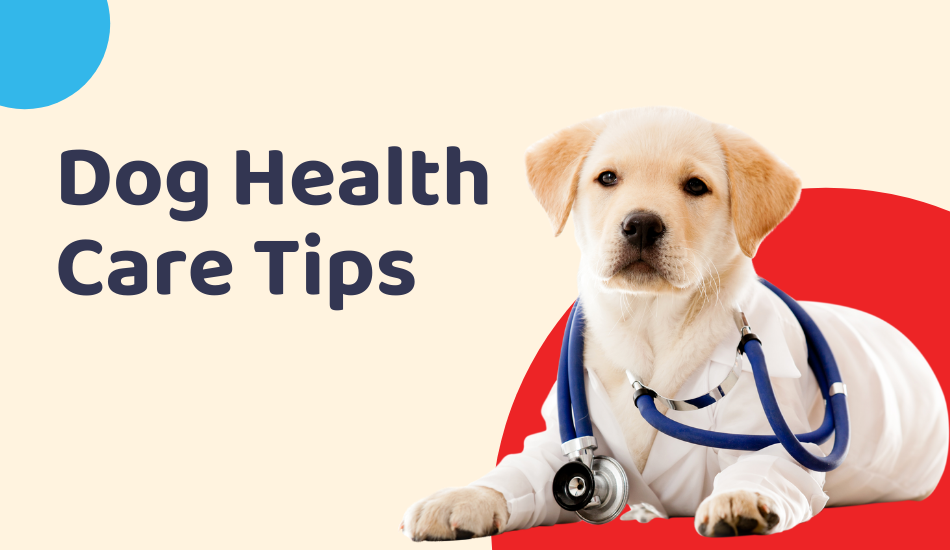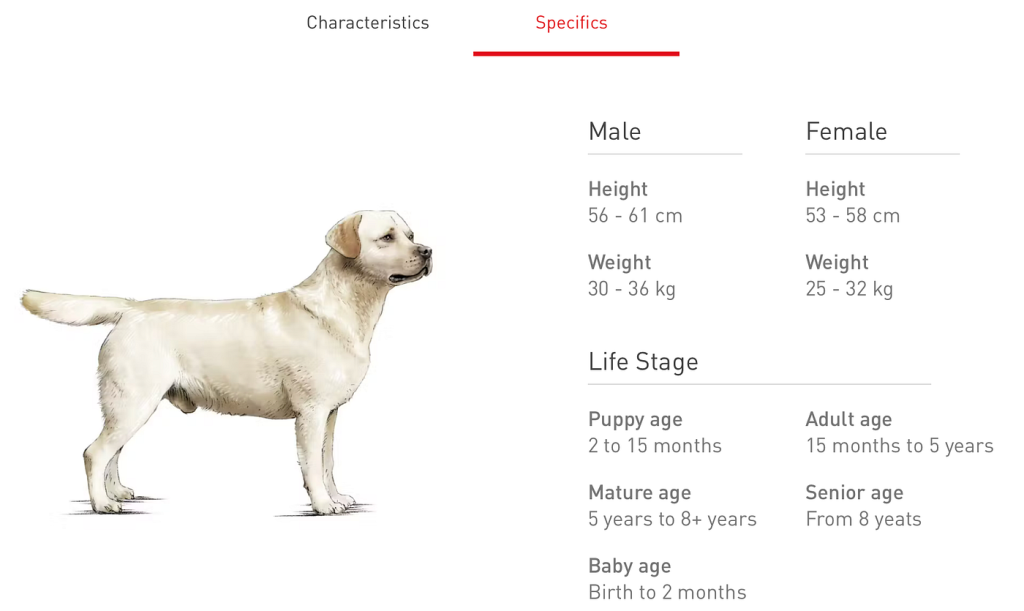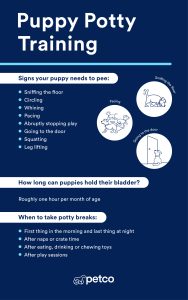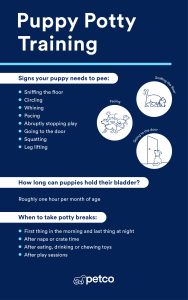Bringing a Labrador puppy into your life is exciting, but it also comes with important responsibilities—especially when it comes to their health. You want your new furry friend to grow strong, happy, and full of energy.
Knowing the right health tips can make all the difference in giving your Labrador the best start. You’ll discover simple yet powerful ways to keep your puppy healthy and thriving. Keep reading, because your Labrador’s well-being depends on what you do today.
:strip_icc()/puppy-destruction-73032598-resized-56a26ab25f9b58b7d0ca007d.jpg)
Credit: www.thesprucepets.com
Choosing A Healthy Labrador Puppy
Picking a healthy Labrador puppy is important for a happy pet life. A strong pup grows into a strong dog.
Knowing what to look for helps you make a smart choice. This guide shares key tips to find a healthy puppy.
Signs Of A Healthy Pup
A healthy Labrador puppy shows many good signs. Watch for these to spot a pup in great shape.
- Clear, bright eyes without discharge
- Clean ears with no bad smell
- Shiny, soft coat with no bald spots
- Playful and alert behavior
- Normal breathing without coughing
- Firm stools, not diarrhea
Selecting A Responsible Breeder
Choose a breeder who cares about the pups’ health. They give good care and proper medical checks.
| Breeder Quality | What to Look For |
| Clean Facility | Clean, safe, and well-maintained area |
| Puppy Socialization | Puppies meet people and other animals often |
| Health Records | Vaccinations and vet visits are up to date |
| Parent Dogs | Parents are healthy and friendly |
Initial Vet Checkup
Take your new Labrador puppy to the vet right away. The vet checks for hidden health problems.
The vet will:
- Check heart, lungs, eyes, and ears
- Test for parasites and infections
- Give first vaccinations
- Give advice on food and care

Credit: zigly.com
Nutrition Essentials
Feeding a Labrador puppy the right food helps them grow strong and healthy. Good nutrition supports their energy and development.
Choosing the proper diet early on sets the stage for a long, happy life. Pay attention to what and when you feed your puppy.
Best Puppy Food Options
Select puppy foods made for large breeds like Labradors. These have the right balance of nutrients for growth.
Look for foods with high protein, healthy fats, and essential vitamins. Avoid foods with fillers or artificial additives.
- Dry kibble formulated for large breed puppies
- Wet food with natural ingredients and no preservatives
- Grain-free options if your puppy has allergies
- Foods with DHA for brain and eye development
Feeding Schedule Tips
Feed your Labrador puppy small meals several times a day. This keeps their energy steady and prevents overeating.
As they grow, you can reduce meal frequency but increase portion size. Always provide fresh water with meals.
- Feed 3 to 4 times daily until 4 months old
- Switch to 2 to 3 meals daily after 4 months
- Keep feeding times consistent every day
- Watch your puppy’s weight and adjust portions
Supplements And Treats
Supplements can support your puppy’s health but use them carefully. Always ask your vet before adding supplements.
Treats should be healthy and given in moderation. Use treats for training and positive reinforcement.
- Omega-3 supplements for skin and coat health
- Calcium for strong bones, if recommended by vet
- Low-calorie treats with natural ingredients
- Avoid giving human food as treats
Vaccinations And Preventive Care
Keeping your Labrador puppy healthy starts with good vaccinations and care. These steps protect your dog from many illnesses.
Regular vet visits help catch problems early. Preventive care keeps your puppy strong and happy.
Core Vaccines For Labradors
Your Labrador needs certain vaccines to stay safe from common diseases. These core vaccines protect against serious infections.
- Distemper: Protects against a deadly virus affecting breathing and nervous system.
- Parvovirus: Prevents a severe intestinal infection.
- Adenovirus (Canine hepatitis): Guards the liver and eyes from damage.
- Rabies: Required by law and protects against a fatal virus spread by bites.
Parasite Prevention
Parasites can harm your puppy’s health. Fleas, ticks, and worms cause discomfort and sickness.
| Parasite | Prevention Method | Frequency |
| Fleas | Topical treatments or collars | Monthly |
| Ticks | Spot-on treatments or oral meds | Monthly |
| Worms | Regular deworming pills | Every 3 months |
Regular Health Screenings
Health checks catch illness early. Your vet will check weight, teeth, and heart health.
- Check your puppy’s eyes and ears for signs of infection.
- Monitor weight to prevent obesity.
- Look for changes in behavior or appetite.
- Schedule yearly vet visits for full exams.
Exercise And Socialization
Keeping a Labrador puppy healthy means giving it exercise and social time. These help the puppy grow strong and happy.
Exercise and socialization teach good behavior and make your puppy confident around others.
Age-appropriate Activities
Young Labradors need gentle play to protect their growing bones. Short walks and soft fetch games work well.
- Start with 5 to 10 minute walks twice a day
- Use soft toys for fetch and tug games
- Avoid jumping from heights or rough play
- Gradually increase playtime as the puppy grows
Socializing With People And Pets
Meet new people and friendly pets often. This helps your puppy learn to be calm and friendly.
| Social Group | Why It Helps |
| Family Members | Builds trust and comfort |
| Neighbors | Teaches calm greetings |
| Other Dogs | Improves play skills |
| Cats and Small Pets | Prevents chasing behavior |
Mental Stimulation Techniques
Mental exercises keep your puppy’s mind sharp. They reduce boredom and stop bad habits.
Try these fun mental activities:
- Hide treats for your puppy to find
- Use puzzle toys to challenge their brain
- Teach new commands and tricks
- Rotate toys to keep interest high
Grooming And Hygiene
Keeping a Labrador puppy clean and healthy is very important. Good grooming helps your puppy feel happy and strong.
Regular care keeps your puppy’s coat shiny and skin free of problems. It also stops bad smells and infections.
Bathing And Brushing
Bath your Labrador puppy with warm water and gentle dog shampoo. Bathing once a month is enough unless they get very dirty.
Brush their coat two to three times a week. Brushing removes loose fur and stops mats from forming.
- Use a soft brush for puppies
- Brush in the direction of hair growth
- Check for fleas or ticks during brushing
Nail And Ear Care
Trim your puppy’s nails regularly to stop them from getting too long. Long nails can hurt their paws.
Clean your puppy’s ears once a week. Use a vet-recommended ear cleaner and cotton balls. This helps stop infections.
- Cut nails carefully to avoid the quick
- Use ear cleaner only for dogs
- Look for redness or bad smell in ears
Dental Hygiene Practices
Brush your Labrador puppy’s teeth daily using a soft dog toothbrush and toothpaste. This prevents bad breath and tooth decay.
Give dental chews and toys to help clean their teeth naturally. Healthy teeth support good eating and overall health.
- Use toothpaste made for dogs only
- Start brushing when the puppy is young
- Check teeth and gums regularly for problems
Common Health Issues
Labrador puppies can face several health challenges as they grow. Knowing these issues helps owners keep their pets healthy and happy.
Early detection of problems can lead to better treatment and care for your puppy. Watch closely for any unusual signs.
Hip And Elbow Dysplasia
Hip and elbow dysplasia are common joint problems in Labradors. These conditions cause pain and difficulty moving.
They happen when the joints do not develop properly, leading to arthritis over time.
Signs to watch for include limping, stiffness, and trouble standing up.
Allergies And Skin Problems
Many Labradors suffer from allergies that affect their skin. These can come from food, pollen, or fleas.
- Itching and scratching often
- Red or inflamed skin
- Hair loss in patches
- Frequent ear infections
Talk to your vet if you notice these signs. They can help find the cause and offer treatment.
Signs Of Illness To Watch
| Symptom | Possible Cause | Action |
| Loss of appetite | Infection or pain | Visit the vet |
| Vomiting or diarrhea | Digestive issues | Keep hydrated, see vet if lasts |
| Lethargy | Illness or fatigue | Monitor and consult vet |
| Excessive coughing | Respiratory problems | Seek veterinary care |
Early action improves recovery chances. Always consult a vet if your puppy seems unwell.
Creating A Safe Environment
Keeping your Labrador puppy safe is very important. Puppies are curious and explore with their mouths.
A safe space helps prevent injuries and keeps your puppy healthy as they grow.
Puppy-proofing Your Home
Remove small items that your puppy could swallow. Keep electrical cords out of reach.
Block off areas that are dangerous or hard to clean. Use baby gates or playpens.
- Pick up shoes, toys, and small objects
- Cover or hide electrical wires
- Keep cleaning supplies locked away
- Use gates to limit puppy access
Safe Toys And Chews
Choose toys made for puppies. Avoid small or sharp toys that can break easily.
Chewing helps puppies with teething, so give safe chew toys. Check toys often for damage.
- Select non-toxic, durable toys
- Pick chew toys that match puppy size
- Throw away broken or worn toys
- Watch your puppy play with new toys
Avoiding Toxic Substances
Keep harmful foods and plants out of reach. Some common items can make your puppy sick.
Store medicines, cleaning products, and chemicals safely. Teach family members to do the same.
- Do not feed chocolate, grapes, or onions
- Keep houseplants away from puppies
- Store medicines in locked cabinets
- Use pet-safe cleaning products

Credit: www.petscare.com
Frequently Asked Questions
How Often Should I Vaccinate My Labrador Puppy?
Labrador puppies need vaccinations every 3-4 weeks until 16 weeks old. Core vaccines protect against parvovirus, distemper, and rabies. Follow your vet’s schedule to ensure full immunity and prevent diseases. Regular boosters maintain long-term health.
What Is The Best Diet For A Labrador Puppy?
Feed high-quality puppy food rich in protein and DHA. Balanced nutrition supports growth and brain development. Avoid table scraps and overfeeding to prevent obesity. Consult your vet for portion size and dietary supplements.
How Can I Prevent Common Labrador Puppy Health Issues?
Regular vet check-ups, vaccinations, and parasite control are essential. Provide a balanced diet and safe exercise. Watch for signs of hip dysplasia and ear infections. Early detection and prevention improve your puppy’s health and happiness.
When Should I Start Dental Care For My Labrador Puppy?
Begin dental care at 8 weeks old. Use a puppy-friendly toothbrush and toothpaste. Regular brushing prevents plaque buildup and gum disease. Early dental habits promote lifelong oral health and fresh breath.
Conclusion
Caring for a Labrador puppy requires attention and love. Prioritize their health daily. Regular vet visits help catch issues early. A balanced diet supports growth and energy. Exercise keeps them fit and happy. Socialization builds confidence and reduces fear. Watch for signs of illness or discomfort.
Clean their ears and brush their fur regularly. Provide plenty of fresh water. Create a safe and loving home environment. Your Labrador puppy will thrive with your care. Enjoy the journey together. They grow fast, so cherish every moment.

Emily Barker is the founder of ChillDogLife.com, a space dedicated to helping pup parents discover the best dog products, lifestyle tips, and cozy ideas for happier homes.
A lifelong dog lover, Emily combines her passion for pets with a knack for research to share trusted recommendations on everything from toys and furniture to health and everyday care.
Her goal is simple: to make life easier, stylish, and more joyful for dogs and the people who love them.







